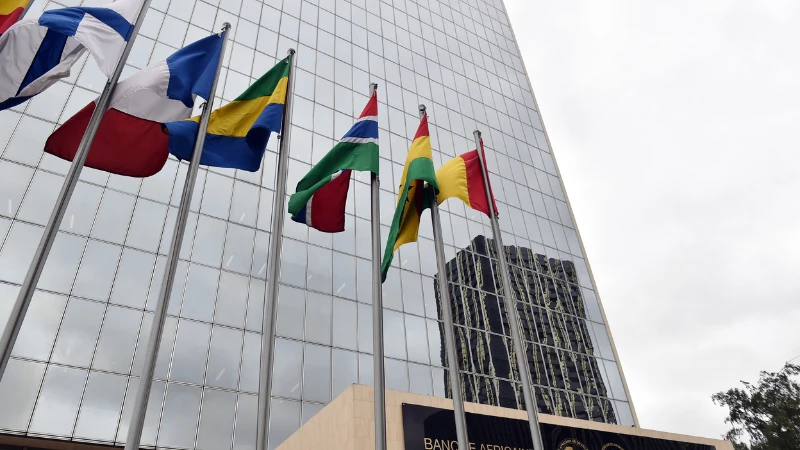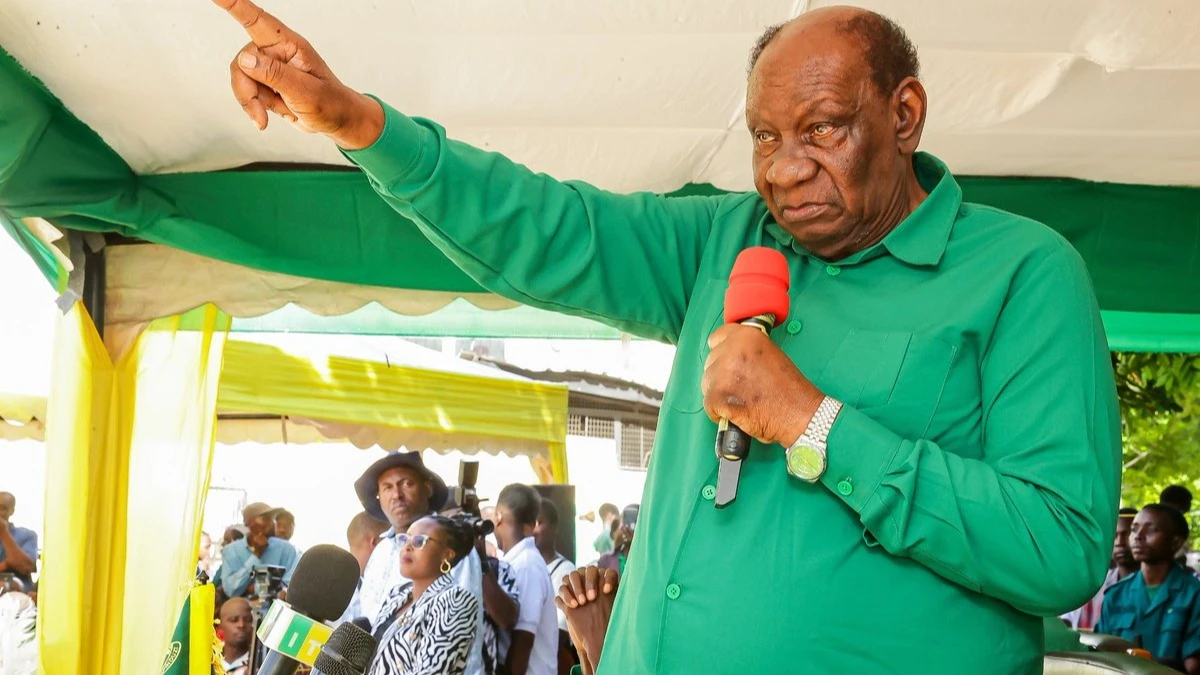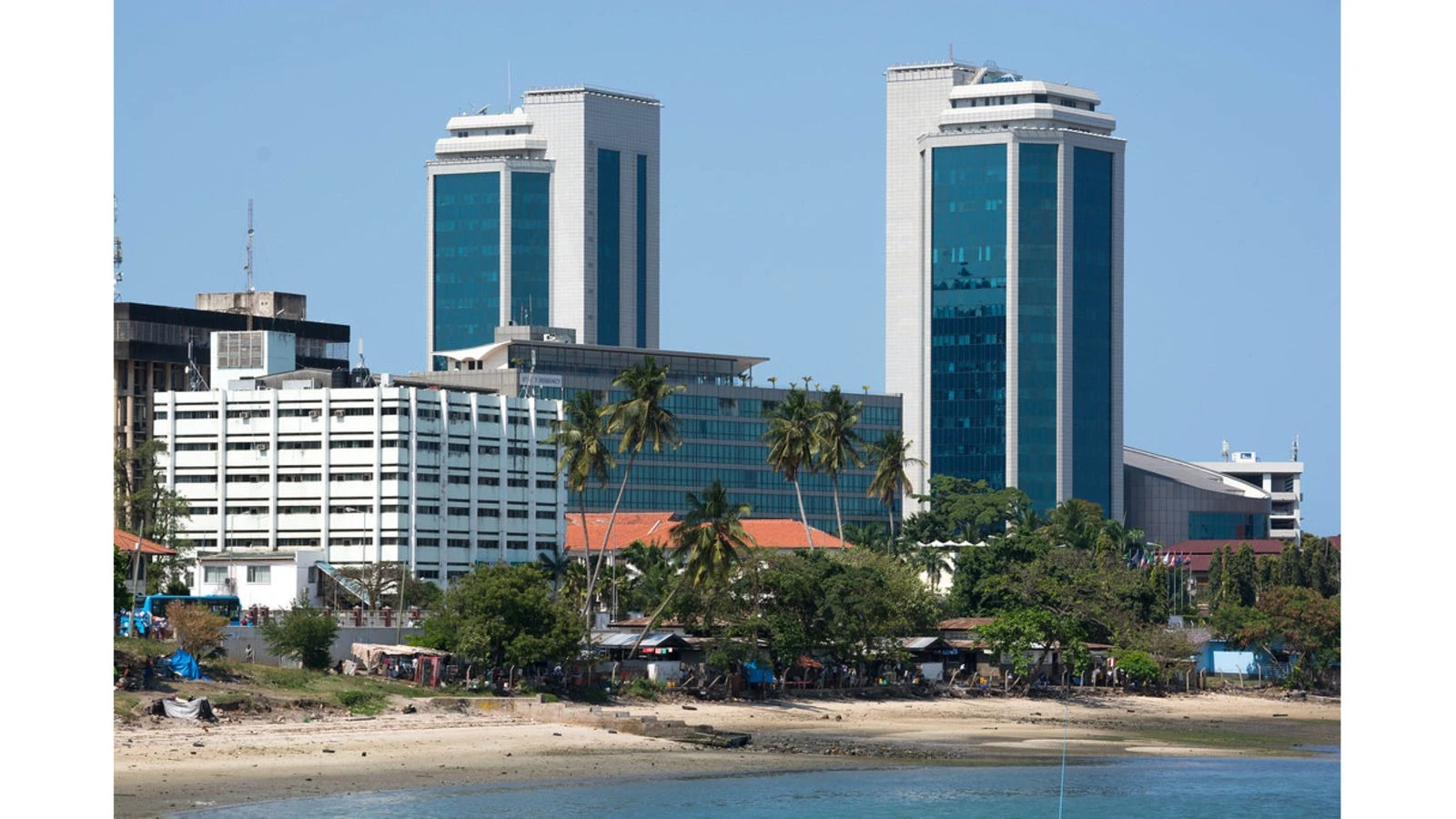How AfDB, AfCFTA could shield Africa from the global trade war

Global trade is undergoing major disruptions, with the United States locked in confrontation with China and other major powers.
US President Donald Trump recently imposed steep tariffs of 145 percent on Chinese imports, triggering an immediate response from Beijing, which retaliated with taxes of 125 percent on American goods. This escalation is already having a profound effect on global supply chains, shaking financial markets, and significantly impacting trade between China and the US.
Although China has been preparing for economic decoupling from the US for years, its exporters are already feeling the consequences.
Ports like Shanghai, the world's busiest, have seen a marked decline in shipments destined for the US While Trump granted exemptions for some electronic goods, this temporary calm remains fragile. The slowdown of China's economy, projected to grow at just around 5 percent in 2025, is forcing the nation to rethink its export strategies and global trade positioning.
For Africa, the ongoing clash between its two main trade partners—China and the US—presents significant risks. China, the continent's leading trade partner for over a decade, is facing pressure from both the US and Europe, which could destabilize Africa’s trade ecosystem. Several concerns arise from this situation, including a likely drop in demand for African raw materials from China, its largest consumer and key production partner.
Another thing, disruptions in global supply chains could directly impact African economies, and the increased volatility in commodity prices might severely affect export revenues. There is also a growing risk of Africa becoming a battleground for an economic proxy war, particularly in sectors such as critical minerals.
A recent example of the effects on global commodity markets is China’s decision to reduce imports of US soybeans. Should the trade conflict intensify, it could severely impact Africa’s fragile economic balance, especially in terms of raw material exports.
In response to these uncertainties, the African Continental Free Trade Area (AfCFTA) offers much more than a trade agreement. It serves as a crucial protective barrier for African economies, capable of minimizing the continent’s dependency on external partners.
Accelerating the implementation of AfCFTA could offer multiple vital advantages in this context. By expanding intra-African trade beyond the current 15 percent, Africa Africa could better weather global trade storms and reduce its vulnerability to external pressures.
Greater continental integration would also boost Africa’s attractiveness to international investors. With 1.3 billion potential consumers and a combined GDP surpassing $3 trillion, AfCFTA offers a compelling alternative to increasingly uncertain global markets. Investors who want to enter Africa could be more inclined to target the continent as a whole rather than focusing on individual emerging markets. This would shift the focus to Africa's collective strength rather than its fragmented parts.
Moreover, AfCFTA would help level the playing field in negotiations with global powers. By speaking with one voice in international trade forums, Africa would gain greater diplomatic and economic leverage. When divided, African nations are easily caught between China, the EU, and the U.S. However, united, they could demand more equitable partnerships and fairer deals.
Beyond trade integration, the question of currency and financial autonomy is essential for strengthening Africa’s resilience. One recent initiative gaining attention is the creation of the African Units of Account (AUA), proposed by the African Development Bank (AfDB).
This new monetary unit, inspired by the gold standard, would be backed by Africa’s vast reserves of critical minerals—such as cobalt, lithium, and manganese—which account for 30 percent of global reserves and have seen their value rise by more than 600 percent between 2004 and 2024.
The AUA could reduce Africa’s dependence on the dollar, which exposes African economies to volatile exchange rates. It would also lower the cost of capital for infrastructure projects by 30 to 40 percent and create a reserve instrument capable of stabilizing intra-African trade.
By turning Africa’s natural resources into financial leverage, the AUA would shift the continent’s position from being a raw material exporter to an economic power with stronger influence on global markets.
Currently, 70 percent of African public and private debt is denominated in strong foreign currencies (dollars and euros). The AUA could provide a buffer against the monetary turbulence amplified by the ongoing trade war between global powers, and offer Africa more control over its financial future.
Africa can no longer afford to wait. The trade war between major powers is not a passing phase but a sign of a deep reconfiguration of the global economic order. In this context, accelerating the effective implementation of AfCFTA has become an urgent priority.
Immediate efforts should focus on ensuring the free movement of people within Africa, harmonizing standards and regulations to facilitate trade across borders, and investing heavily in transport corridors and digital infrastructure to connect African capitals.
AfCFTA is not just a trade agreement, it is the economic project of the century for Africa, a path toward a new kind of economic civilization. In a world where global power dynamics are shifting, Africa must no longer be a passive participant. It must become an autonomous and influential actor on the world stage.
By Idriss Linge
Top Headlines
© 2025 IPPMEDIA.COM. ALL RIGHTS RESERVED

























